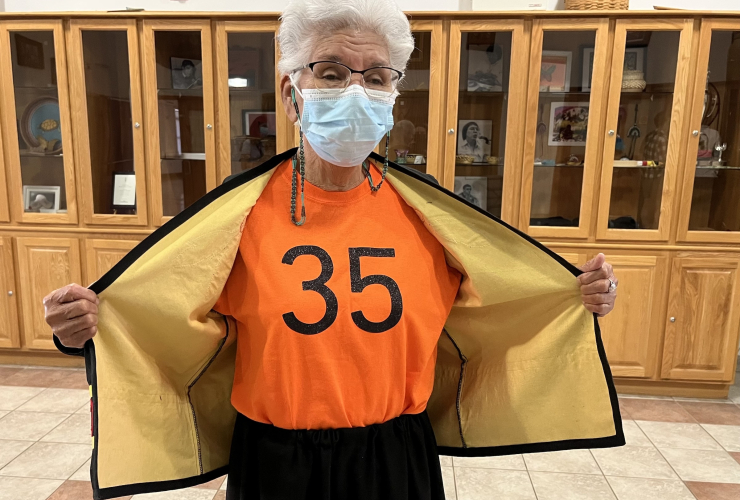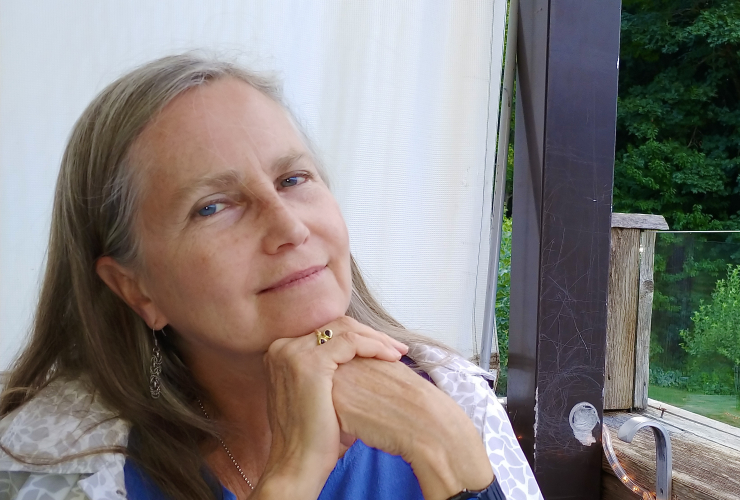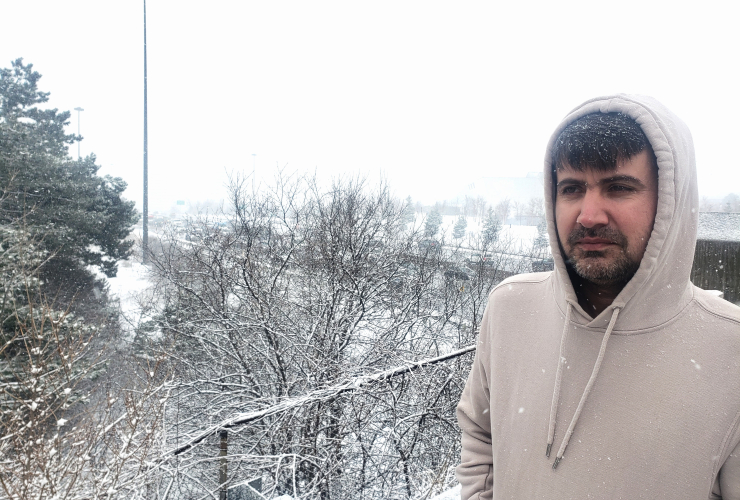Kristen Tenascon was 17 years old when she moved from her home in the Kitigan Zibi Anishinabeg First Nation to Gatineau, Que., to attend CEGEP Heritage College. While she was excited to be living on her own, she felt a “culture shock” when she moved away from her tight-knit family to the city.
“You have to act differently to fit into this culture, and it can be hard to navigate because it's a new culture you haven't experienced before,” Tenascon said. “Moving here, it's incredibly lonely because it doesn't feel like people want to support one another.”
Tenascon now studies dietetics at the University of Ottawa. Ten years later, she said there’s still a huge need for culturally relevant support for Indigenous people in Gatineau.
Charlotte Commonda hopes to change that. The executive director at the Maniwaki Native Friendship Centre plans to open a branch in Gatineau to provide culturally relevant information services, events and classes in Indigenous languages. But first, Commonda said, she needs to find a physical location.
“(The centre) will bring a sense of hope that we can access the support systems we miss to continue on to studies or work,” Commonda said. “It's going to improve the quality of life for my Indigenous brothers and sisters, for my children and my grandchildren.”
The original Native Friendship Centre in Maniwaki, Que., sits more than 130 kilometres north of Ottawa, next to the Kitigan Zibi Anishinabeg First Nation. It offers any Indigenous people near Maniwaki access to support services, including after-school transportation, tutoring and counselling. It hosts cultural nights and Elders’ circles and is even home to a doctor’s clinic.
“It's a place for community, where you can get to know people and make friends,” Tenascon said. “It's a social support.”
But Maniwaki is a small place, Commonda said, so to attend an English high school or CEGEP, many people head to Ottawa and Gatineau. Tenascon said to get post-secondary education, people from Kitigan Zibi have to head to the city.
“If you want to go to college, you are going to be living alone in the city, in a strange place that's completely different from our reserve,” Tenascon said.
Research shows Gatineau, which is home to thousands of Indigenous people attending school or accessing health care in Ottawa, lacks culturally relevant support services. A report from Quebec’s Association of Native Friendship Centres surveyed Indigenous people in Gatineau to assess the care available in the city.
While the Odawa Native Friendship Centre offers services across the border in Ottawa, the report found more than three-quarters of respondents encountered obstacles when looking for culturally appropriate support services in Gatineau. The report concluded Gatineau has a “significant lack of culturally safe services for Indigenous people.”
Commonda said sometimes, people who are taken in an ambulance from Maniwaki to Ottawa find themselves struggling to find a way back. A community centre in Gatineau could help people co-ordinate transportation back home.
“There was a gap there that we were missing when we try to support members in the city because we don’t have contact and we don’t have a centre to reach out to for support,” Commonda said. “We needed to extend.”
When Commonda announced she would expand the centre, Ian Lafrenière, Quebec’s minister for government-Indigenous relations, pledged $200,000 annually in funding.
When Tenascon heard the centre would expand to Gatineau, she was excited.
“There's such a need for more support for Indigenous students and people in Gatineau,” Tenascon said. While she was able to rent a unit in a family member’s home in the city, Tenascon said some of her friends have started their education before they find housing.
Even having a space for cultural events can be impactful, Tenascon added. One night, Tenascon was anxious about where her next meal was coming from when the University of Ottawa’s Indigenous Resource Centre hosted a soup and bannock night.
“I got my stomach filled and was given leftovers. I was good for the next couple of days,” Tenascon said. “The presence of food is really helpful. You don't know how much people need that sometimes.”
Tenascon said a friendship centre could make it easier for Indigenous people in Ottawa to access cultural nights and events. She added cultural nights and having a space for Elders and young Indigenous people to congregate could strengthen their connection to culture.
“There's a weird guilt that I think a lot of Indigenous students have about leaving the reserve,” Tenascon said. “On one hand, we're getting this education to help improve our communities, but at the same time, we're missing out on precious time with our Elders.”
A support centre could help Indigenous students find housing, sign leases and pay bills, Commonda said. She said she also hopes the centre can provide translators to accompany Elders to health-care facilities. One day, she said, she hopes the centre in Gatineau can open a student housing building, a daycare and a medical centre.
While the centre in Maniwaki primarily provides care to Algonquin people from the Kitigan Zibi Anishinabeg First Nation, Commonda said she wants to extend services to all Inuit and First Nations people.
“The doors are open for all,” Commonda said. “We have to learn other cultures and traditions… We're hoping our members will help teach us what they need.”
Commonda said she is currently looking for an accessible location and will likely start renting a space in Gatineau’s Plateau neighbourhood. She said she plans to open the centre’s doors by May.
“(Indigenous people from Maniwaki) disconnect themselves from their communities when they move to the city,” Commonda said. “If they could at least have access to some of the language, some of the traditional teaching and some of the activities, it may bring a bit of relief.”
Isaac Phan Nay / Canada’s National Observer / Local Journalism Initiative






Comments